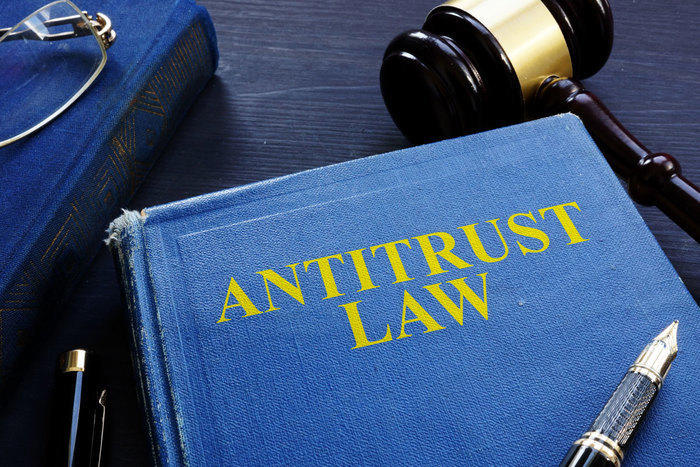Antitrust law is fundamental to protect businesses, consumers, and the marketplace. Essentially, it is a series of laws that govern businesses practices. Without these laws in place, companies could engage in whatever tactics they liked to boost profits.
Antitrust laws have been put in place to ensure fair competition. Antitrust lawyers have a wide range of responsibilities when it comes to enforcing or defending against these antitrust laws.
What Is Antitrust Law?
Antitrust law, often referred to as competition law, protects business competition and consumers by promoting and regulating fair competition in the marketplace. Antitrust law is what prevents unfair business acts such as:
- Price-fixing: When a rival business colludes with one another to keep prices at a certain level, it is known as price-fixing. This practice enables the companies concerned to achieve higher profit margins to the detriment of the consumer.
- Price discrimination: Price discrimination involves any activity whereby businesses give different buyers different prices to maximize profit.
- Monopoly activity: These are activities designed to give the company an unfair advantage by limiting the field of competition. In a free economy, companies have to ensure that they're competitive by producing a better product or offering a better price. This only works if they've got competition, though.
- Collusions: Rival companies that agree to manipulate the market are engaging in collusion. A good example is the diamond industry. Diamonds are fairly common. The thing that helps them maintain their value is a false scarcity. This is essentially collusion between major companies to help them maintain their higher value.
- False advertising: In the Wild West, you had a lot of snake oil salesmen. These were people who'd make a fortune by selling a product that supposedly cured anything. There was no regulation at that stage, so they could claim whatever they liked. Antitrust laws help to keep companies in line – they have to back up any claims that they make now.
These are only the most common issues antitrust laws prevent. There are many more. Antitrust ensures that the market will remain a fair place to conduct business where every business has a chance, and every consumer has choices. Because antitrust law deals with business and economic knowledge, knowing specific market details could benefit antitrust lawyers when building a case. However, it is not required because most antitrust lawyers consult with economic experts for cases.
The Sherman Act
The Sherman Act formed the basis of antitrust law. This act was passed in 1890 and was the first federal regulation to prevent monopolies and regulates competition among businesses by prohibiting activities and agreements that would monopolize the market.
The Sherman Act allows the government to bring those who violate this act to court as well as enables private parties to bring suits against violators that hurt their business. Fines for violating this act can span from $1 million to $100 million. The upper end of this range is usually reserved for corporations. Violating this act can also result in a 10-year prison sentence.
The Federal Trade Commission Act
The Federal Trade Commission Act is another major act when it comes to antitrust law. It prohibits unfair competition or deceptive practices. Violating the Sherman Act is also a violation of the Federal Trade Commission Act, so these two acts tend to go hand in hand.
The Clayton Antitrust Act
The Clayton Antitrust Act is an expansion into an area the Sherman Act does not cover. This act explicitly prevents mergers and acquisitions that lessen competition that could lead to a monopoly. It also allows private parties to sue for damages and requires businesses to let the government know of mergers.
What Behaviors Violate Antitrust Law?
There are a variety of shady business practices that violate antitrust law. Basically, if a business interferes with free-market practices in any way, they could be violating antitrust legislation. Here we'll go through some of the most common transgressions.
Market Allocation
Market allocation occurs when two similar businesses agree to do business in two separate geographic areas without crossing regions so that there is no competition between their products. This practice does limit the sales opportunities available to both companies, but they're able to increase their profit margin to compensate.
Say, for example, that a consumer is looking for toothpaste and there are only two manufacturers to choose from nationwide. In a completely free economy, each manufacturer would have to compete on merit.
If the companies decided to engage in market allocation, they'd decide who gets each territory. Say, for example, that Company A sells toothpaste in Hawaii. That would mean that the consumer could only buy their products in Hawaii. They'd be willing to pay more because they have no other options.
Bid Rigging
Bid rigging is another behavior where two or more businesses who are bidding on something agree to bid low, so one business, in particular, wins the bid. Bid rigging can be broken down into:
- Bid suppression: where businesses refrain from bidding
- Complementary bidding: where businesses collude to send bids that are too high
- Bid rotation: where businesses work together and take turns being the lowest bidder.
The problem with this activity is that it's giving one business a significant advantage over the others. The winning bidder gets to set the terms with little interference in terms of real market competition.
Price Fixing
Price fixing as you already know is where two companies collude to keep the price of a product at a set level. It is most commonly done as a way to increase their profit margins. Both companies will then increase their prices and keep them there, with neither trying to undercut the other.
Price fixing can also be used as a tool to freeze out new entrants to the market. In this case, the companies will often set their prices lower than they should in an effort to undercut new entrants. The newer companies can't compete with these fixed prices.
Monopoly Behaviors
This issue is the one that you're going to come across the most. A monopoly occurs when one business dominates an industry with no competition. It can include several underhanded tactics to maintain that domination, such as:
- Exclusive supply agreements: An exclusive supply agreement prevents suppliers from selling to different buyers. So, perhaps the company restricts the sale of products through one exclusive dealer. That means that the dealer can set whatever prices they like because there's no other way to get the product.
- Tying the sale of two products: In this instance, the company packages two different products together so that you're forced to buy a set instead of just the one product. Say, for example, that a company only sells red paint in a set with green paint. If the consumer wants red paint, or green paint, for that matter, they'll have to buy the set, even if they don't need it.
- Predatory Pricing: When businesses slash prices to ensure that new entrants are not able to gain a foothold in the market, they are practicing predatory pricing. It's very similar to price-fixing.
- Refusal to deal: This is where a market-dominating business prevents competition through who they choose to conduct business with. It's very similar to exclusive supply agreements.
- Mergers and acquisitions: These are not always illegal, but they can be if they allow one company to achieve a monopoly. Imagine that Facebook, for example, bought all the social media companies on the market today. It's their principle to buy out competitors instead of competing directly, and that could be seen as bordering on monopolistic behavior. They're not crossing the line, yet, though.
When it comes to mergers, there are a few different sub-types to consider:
- Horizontal mergers are a violation of antitrust laws and occur when a business enters a merger that gives them a larger share of the industry.
- Unilateral mergers are similar in that they occur when one business merges with a rival business to have more dominance of the market.
- Vertical mergers are mergers that are between buyers and sellers.
- Potential competition mergers are when businesses facilitate mergers before the competition comes along. So, where a big company buys out a startup to maintain their competitive edge, for example.
What Makes a Good Antitrust Lawyer?
Antitrust lawyers require the same skills as any lawyer. They should be hardworking, determined, organized, and excellent at writing and speaking. They should also not stop learning and should always be trying to piece things together.
A sound understanding and knowledge of economics would be beneficial. That said, it is not necessarily required as they consult with experts a lot of the time.
As an antitrust lawyer, you'd need to be a good negotiator at the very least. If you're specializing in mergers, most of your work will be in the boardroom rather than the courtroom. That would entail some serious negotiations.
If you're planning to prosecute cases, you'll need to be a strong litigator. If you love standing up for the little guy, this might be the route that you want to go.
If you're planning to defend companies against these allegations, then you'll also need strong litigation and negotiation skills.
In any case, be prepared to deal with a lot of paperwork and ensure that you always put through a well-reasoned argument.
Antitrust laws are essential. Without them, businesses would be able to do a whole bunch of shady practices that would hurt other businesses and, especially, the consumer. Antitrust lawyers have a huge responsibility to ensure that these laws are upheld because, without them, businesses could almost do whatever they wanted.
What Do Antitrust Lawyers Do?
Antitrust lawyers are there to ensure that business complies with antitrust laws and that they do not participate in unfair business ventures that impact competition and/or consumers negatively. They do this several different ways.
Enforcing Antitrust Laws
In this instance, antitrust lawyers would take on businesses that have engaged in unfair practices. This could involve both civil and criminal litigation.
As a civil litigator, you'd be taking on the case of business or consumers negatively affected by these practices. An example would be where a company has been frozen out of the market by these practices. If these concerns are proven valid, the defendant could be forced to pay out a settlement.
You might also consider joining a state body, the Federal Trade Commission, or the U.S. Department of Justice if you want to prosecute offenders criminally.
Defending Against Antitrust Allegations
If a company is charged with violating antitrust laws, they'll need legal representation. As a lawyer, in this case, you'd argue the case, provide advice, deal with settlement negotiations if applicable, and lobby for the reduction of fines and penalties.
Providing Advice to Keep Companies Out of Trouble
You could also offer counsel to different parties on what to do and what ways to proceed without violating antitrust laws. Antitrust lawyers could also aid with mergers and acquisitions. In these cases, they either advise clients or even go as far as filing the documents with the proper antitrust authorities.
Most antitrust lawyers specialize in one of three categories: civil and criminal litigation, counseling, or merger work.
There's a Lot of General Work in Common
Antitrust lawyers also participate in a variety of litigation activities like any other kind of lawyer. These activities include legal research, taking depositions, negotiating, arguing motions, and much more.
Antitrust lawyers work with a lot of documents, so most of their time revolves around writing, editing, reviewing, and researching documents. Sometimes, antitrust lawyers will also need to consult with economic experts for certain cases.
How Would an Antitrust Case Work?
There are a few ways that these cases can start:
- The injured party filing a civil case: In this instance, the defendant has to defend themselves against the allegations made. These cases may result in a settlement conference or a court case. The judge ruling on the case will be able to award damages, but the company won't be criminally prosecuted unless one of the authorities decides to act.
- Someone making a complaint to the authorities: The second choice is to go directly to the Federal Trade Commission or the Department of Justice's Antitrust division. These cases could result in severe penalties, or even criminal charges being levied.
No matter how the complaint is initially put forward, the company concerned will be given the opportunity to defend themselves. Part of the issue here is that it can be challenging to prove that companies have actually colluded with one other to upset the market in some way.
If you're the person bringing the action, you'll need to make a strong case to win.
Private Practice or Join a Firm?
That's the eternal question that every lawyer needs to ask themselves. In this case, there's nothing stopping a smaller, private practice from taking on the case. The actual team that you need to create your argument is very small. Most firms of attorneys have very small teams working in this area.
Where you are going to need help is in wading through all the paperwork. This is a job that most firms will set to their research teams or interns. It's not glamorous or particularly difficult research, but it is an essential part of the process.
Another aspect to consider is that the larger companies are more likely to hire larger law firms to work on these issues with them. Working at a firm, therefore, might allow you to get a lot more experience in this area, at least to start with.
Choosing to specialize in antitrust law could be a good bet in terms of your career. These cases are complex and so translate into a lot of billable hours. A specialist in this area can put a high price on their services.
In fact, some law firms use these cases as a great source of income. They'll bill the client for the full rate, and then set their interns to do the research. Considering how much research will be needed, this can bring in a lot of cash.
Final Notes
Antitrust law can be an exciting form of law to practice. There are so many opportunities here and so many varied cases. If you're prosecuting offenders, finding sufficient evidence can be tricky. The large companies will usually try to bury you in paperwork to cloud the issue. So, do be prepared for doing a lot of research and digging.
On the upside, prosecuting these cases can be very satisfying. You'll assist your clients in getting justice and helping to make our markets a fairer place. This, in turn, is good for the economy as a whole.
Whether prosecuting or defending in these cases, you stand to make a fair amount of money. Bringing a valid class action suit against a company could net you and your clients a lot of money.
Providing advice to companies about staying on the right side of the law could also be quite lucrative.












